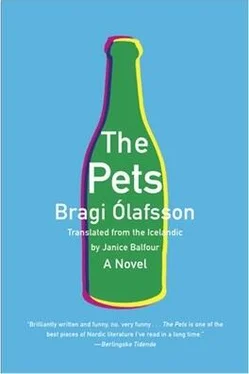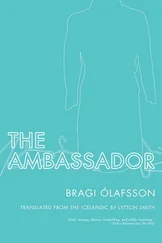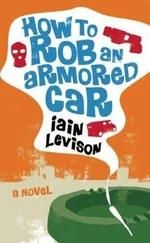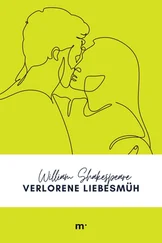Bragi Ólafsson - Pets
Здесь есть возможность читать онлайн «Bragi Ólafsson - Pets» весь текст электронной книги совершенно бесплатно (целиком полную версию без сокращений). В некоторых случаях можно слушать аудио, скачать через торрент в формате fb2 и присутствует краткое содержание. Год выпуска: 2008, Издательство: Open Letter, Жанр: Современная проза, на английском языке. Описание произведения, (предисловие) а так же отзывы посетителей доступны на портале библиотеки ЛибКат.
- Название:Pets
- Автор:
- Издательство:Open Letter
- Жанр:
- Год:2008
- ISBN:нет данных
- Рейтинг книги:5 / 5. Голосов: 1
-
Избранное:Добавить в избранное
- Отзывы:
-
Ваша оценка:
- 100
- 1
- 2
- 3
- 4
- 5
Pets: краткое содержание, описание и аннотация
Предлагаем к чтению аннотацию, описание, краткое содержание или предисловие (зависит от того, что написал сам автор книги «Pets»). Если вы не нашли необходимую информацию о книге — напишите в комментариях, мы постараемся отыскать её.
Pets — читать онлайн бесплатно полную книгу (весь текст) целиком
Ниже представлен текст книги, разбитый по страницам. Система сохранения места последней прочитанной страницы, позволяет с удобством читать онлайн бесплатно книгу «Pets», без необходимости каждый раз заново искать на чём Вы остановились. Поставьте закладку, и сможете в любой момент перейти на страницу, на которой закончили чтение.
Интервал:
Закладка:
“Were you there for long?” I asked, just to say something.
“Yes and no,” she answered. “I would have liked to stay longer but maybe not with my sister. I like being in London.”
“But not at your sister’s?”
“Yes, of course it’s good to stay with one’s sister in London. But I wouldn’t have minded if she was sitting here now beside you instead of me.”
I didn’t quite know what to say to this.
“I didn’t mean it like that,” she said, as if she had read my thoughts. “I would just have liked to stay longer in her flat, that is without her being there as well. But, what did you say, were you just shopping? Not doing anything?”
“I was visiting a friend who is at university there,” I said. “Just disrupting his studies, he’s learning economics. But besides that, I was just wasting money. Or converting it into something else; one doesn’t really waste money by buying something with it, of course it is still in circulation.”
“It’s still in circulation?”
“At least it doesn’t disappear,” I said, beginning to regret my stupid attempt to be clever. “I mean the money I took with me, it’s in London now,” I explained and tried to sound as if I was deliberately making a poor joke. “I didn’t really waste it, I just exchanged it for something else.”
“I see,” Greta said with a good-natured smile.
“Well, I won the lottery a few weeks ago,” I was quick to add, trying to steer the conversation away from this silly remark about wasting money. I realized straight away that I had made matters worse; it was stupidly naive to tell a complete stranger that one had won the lottery. But her reaction didn’t seem to indicate that I had made a fool of myself:
“May I ask how much you won?” she asked keenly.
“A million.”
“A million?”
“Yes, one million.”
“Then what? You went and wasted the lot in London? I mean, did you take it all with you to London?”
We both laughed. I answered that I hadn’t wasted it all, and we began to laugh again at the verb “waste,” which is difficult to avoid using when talking about money; we had made a new version of the word game The Lady in Hamburg. While Greta told me about her unsuccessful shopping trip, as she called it — she had spent a whole day in town, from ten in the morning till seven in the evening and hadn’t managed to buy a single thing for herself — I began to wonder if I had bought enough in London, if the trips to the music stores and book stores had been as productive as I had expected them to be, if one can use such professional terms in this context.
As I started thinking that, instead of meeting on the plane, we had bumped into each other in London, maybe walked into the same bar and one heard the other order a drink, Greta asked — not in the imaginary bar but beside me here in the bus — if I lived alone or with someone. I was surprised that she asked me this — I thought that these kinds of questions came later on, after you got to know a person better — but I told her the truth: I had lived alone for a little while now but had a seven-year-old son who lived in Denmark with his mother and came to visit me in the summertime.
“I’m in a similar situation,” she said. “I have a five-year-old daughter, and I live alone. Or almost, I live in the basement of my mother’s house.”
We carried on talking for the rest of the ride, and I think, considering how we had only just met, we were quite frank about ourselves. I didn’t mention that I had a girlfriend and thought it was very likely that she was keeping similar information to herself. It looked like the romantic comedy I had imagined outside the toilet on the plane might actually reach its happy conclusion. We agreed to meet in the evening, she would call me after she had had her supper, taken a bath and so on.
Of course Vigdis cast a large, dark shadow over the excitement and nervous fluttering that I felt inside, but it had to be like that; I wasn’t going to stop now, I couldn’t do it to myself nor to this interesting woman whom — however illogical it was — I continually imagined changing the sheets and scrubbing bathrooms in the hotel rooms in Akureyri where Vigdis worked. I wouldn’t see Vigdis for several days and told myself that I had to wait and see what would evolve with Greta. I couldn’t even be sure that anything would happen. It could be that whatever was meant to happen had already happened. If she called, it might just be to say thank you for our conversation on the bus; she had to spend time with her daughter this evening and maybe she would contact me later.
Her mother came to pick her up at Loftleidir Hotel. I had already declined the offer of a ride with them. I would take a taxi as I had to stop at a certain place on the way. Despite the fact that I was impatient to spend more time with this new girlfriend, it was too much of an insult to Vigdis to ride in Greta’s mother’s car. While I watched mother and daughter drive off, I suddenly felt that the clothes that Vigdis had asked me to buy in London were unbelievably drab. I thought that it would have been a real waste of money to have bought them.
I couldn’t decide if I felt good or bad. When I sat in the taxi and told the driver to go to Grettisgata, I saw a dirty white Hyundai drive up to the couple from the duty-free store. I found it rather amusing that I, though I knew nothing about them, just the same, knew the name of the man who stepped out of the car. And he, this Eyvi, didn’t know that I, a complete stranger who at this very moment was driving away in a taxi, was responsible for the fact that his brother was giving him a whole liter of fifteen-year-old malt whisky, instead of some cheap cognac in a plastic bottle.
Still, I thought he might get nothing at all.
16
Before he sat down in one of the booths, he fetched a cup of coffee. He made a point of asking for a large cup of coffee, in a mug if they had one, and ordered another double vodka. There was a newspaper folded on the table. Once he had moved several empty beer glasses and dirty dishes over to the next table, he opened the newspaper and began to read. They were playing old, Icelandic pop songs on the radio. He skimmed through the newspaper, then he folded it again and used it to wipe the table, which was wet from the previous customers. He gazed into space for a few minutes, sipping his coffee and vodka now and then, always the vodka first, then the coffee. He took the book out of the plastic bag and placed it on the table, after first inspecting it to make sure it was perfectly dry and clean. He turned the pages slowly. He wasn’t reading the text; he just seemed to enjoy looking at the old pages. Then he closed the book and gently stroked the back and front covers, as if he were wiping off a thick layer of dust and didn’t want it to spread all over the table.
Next he put his hand in the pocket of his anorak and took out the money and the photo of the girl with the Bible he had acquired in Austurstraeti. Then he got his wallet out from his inner breast pocket and took out a slim pile of bills. When he had added the piles together, he found that he had forty seven thousand kronur. He straightened the bills, put them down on the table, and, finishing his vodka, pressed a glass down on top of them like a paperweight.
He glanced around, stretched his neck to see the two girls at the counter, and little by little began to act nervously, as if he was waiting for someone and was excited about it. He tapped the book with his index finger, gulped down the coffee, pressed the palm of his hand down on the empty vodka glass, and suddenly raised his hand, waving in the direction of the counter and calling hello until one of the barmaids noticed him. She asked if he wanted something; he beckoned her to come over to him. She didn’t seem to understand his sign language at first, but then she came out from behind the bar and walked in the direction of the tables; she had a puzzled look on her face. He smiled kindly at her and asked for her name. She seemed surprised, looked away for a moment, and then asked what he wanted. He smiled at her again — as if he wanted to tell her it was all right, he was just asking out of curiosity — and then he pointed at his empty glass and told her to bring him a double whisky with ice, no more coffee, just a double whisky with ice. When she told him that they didn’t usually serve at tables there, he took hold of her arm and pulled her closer. She didn’t seem surprised, and he asked her in a whisper if she would come outside with him, maybe into an alleyway nearby; he would give her fifteen thousand kronur, just for coming with him for ten, fifteen minutes. Either she didn’t understand what he was saying or didn’t want to understand. She pulled her arm away and said something about him having to come to the bar, she didn’t take any orders at the tables. But he seemed determined to get what he wanted, and he took hold of her arm again and repeated his offer: just the two of us somewhere nearby, just a few minutes for fifteen thousand kronur. He pointed at the pile of bills under the glass. Now she understood him; the girl loosened her arm by hitting him in the chest. She told him firmly, without broadcasting it all over the place, to leave. She used these words in the infinitive and when he didn’t stand up she called to someone named Kristjan. It sounded as if this Kristjan was the owner of the restaurant, and it worked. He stood up from the table, knocked his glass over as he stretched for his money, snatched up his plastic bag, and pushed past the girl in the direction of the door.
Читать дальшеИнтервал:
Закладка:
Похожие книги на «Pets»
Представляем Вашему вниманию похожие книги на «Pets» списком для выбора. Мы отобрали схожую по названию и смыслу литературу в надежде предоставить читателям больше вариантов отыскать новые, интересные, ещё непрочитанные произведения.
Обсуждение, отзывы о книге «Pets» и просто собственные мнения читателей. Оставьте ваши комментарии, напишите, что Вы думаете о произведении, его смысле или главных героях. Укажите что конкретно понравилось, а что нет, и почему Вы так считаете.
